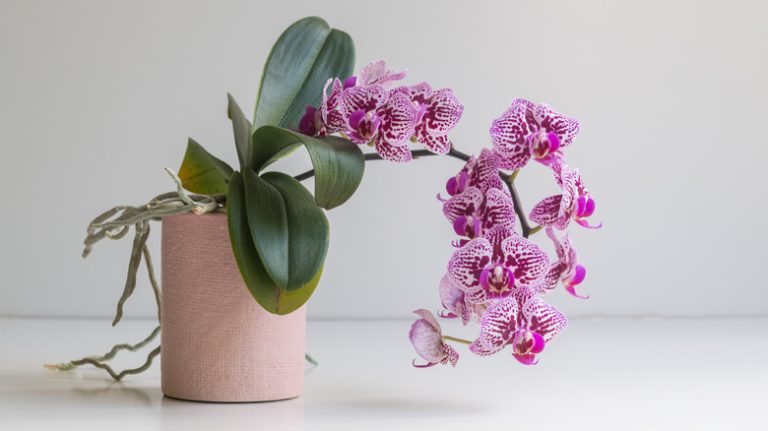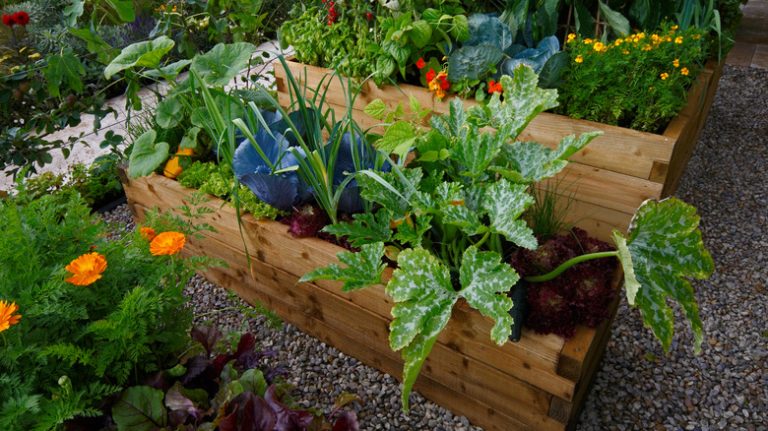Sunflowers are not only beautiful to look at, but they also offer a tasty treat for many animals. From birds to squirrels, a variety of creatures find sunflower heads irresistible. Some animals, like chipmunks and raccoons, want the seeds inside the sunflower heads, while others, such as bees and beetles, are more interested in the nectar and pollen. There are even animals, like rats and moths, that enjoy snacking on the vibrant petals of sunflowers.
It may come as a surprise, but sunflowers are actually native to North America. They have been cultivated for centuries and have become a staple in many gardens. However, growing sunflowers can pose some challenges, as there are several pests and diseases that can affect them. Leaf mildew, rust, and canker are just a few of the problems sunflowers may encounter. If you’ve recently planted sunflowers and are experiencing issues, it’s important to identify the culprits.
There are a number of animals that can cause damage to sunflowers. Birds are often seen pecking at the sunflower heads, while squirrels and raccoons may chew on the stems or feed on the seedlings. Moths and cutworms can also nibble on the leaves, and voles may burrow between the rows of sunflowers. Additionally, insects like beetles and bees can transmit diseases from one plant to another.
So, what can be done to protect your sunflowers from these hungry critters? One step you can take is to plant thorny or prickly plants nearby, as some animals will be deterred by the sharp thorns. You can also try companion planting, where you grow other species of plants that repel or confuse the pests. For example, planting marigolds or garlic around your sunflower patch may help to keep pests at bay.
There are also some natural remedies you can try, such as spraying a mixture of cider vinegar and water on the leaves and stems to deter insects. Some gardeners have had success with using homemade sprays made from garlic or hot peppers. Another option is to place bird feeders or posts near your sunflowers to attract birds, which can help to control pest populations.
However, it’s important to note that not all animals that visit sunflowers are pests. Some, like bees and birds, play a crucial role in pollination and should be encouraged. Others, like squirrels and raccoons, may be harder to deter, but there are still steps you can take to minimize the damage they cause. By being proactive and taking the necessary precautions, you can enjoy the beauty of sunflowers without sacrificing their health.
9 Animals That Eat Sunflowers With Pictures
When it comes to sunflowers, there are many animals that enjoy feasting on their tasty seeds and leaves. From small insects to large mammals, sunflowers attract a variety of wildlife. Here are 9 animals that can’t resist the deliciousness of sunflowers:
| Animal | Description | Picture |
|---|---|---|
| Squirrels | Squirrels are known for their love of sunflower seeds. They will climb up a thorny stem and feast on the seeds. |  |
| Bees | Bees are attracted to sunflowers’ bright yellow flowers. They play a crucial role in pollinating sunflower plants. |  |
| Rats | Rats are known to eat sunflower seeds and even the leaves of sunflower plants. These nocturnal creatures can cause damage to sunflower crops. |  |
| Deer | Deer are fond of sunflowers and will often munch on the plants, especially the young leaves. They can cause significant damage to sunflower fields. |  |
| Mice | Mice are attracted to sunflower seeds and can often be found nibbling on them. They may also use sunflower plants as shelter. |  |
| Voles | Voles are small rodents that sometimes dine on sunflower roots. They can cause damage to the stems and roots of sunflower plants. |  |
| Cottontail rabbits | Cottontail rabbits may be attracted to sunflower seeds and sometimes nibble on the leaves of sunflower plants. They can leave signs of their presence, such as bitten stems. |  |
| Insects | Insects, such as grasshoppers, aphids, and moths, are also attracted to sunflowers. Some insects feed on nectar while others lay eggs on the plants. |  |
| Gray ratsnake | Although not directly related to sunflowers, ratsnakes prey on rats and mice that live in sunflower fields. They help control rodent populations. |  |
These are just a few examples of the animals that enjoy eating sunflowers. If you are growing sunflowers and want to protect them from wildlife, there are steps you can take, such as using netting or deterrent sprays. It’s important to consider the needs of both the animals and the sunflowers when finding a balance in their coexistence.
9 Animals That Eat Sunflowers
When it comes to sunflowers, there are quite a few animals that enjoy indulging in this tasty treat. From insects to mammals, sunflower plants can be a source of food for a variety of creatures. Here are 9 animals that have a taste for sunflowers:
|
1. Gray Squirrels |
Gray squirrels often feast on sunflower seeds. They can be quite crafty when it comes to accessing the seedheads and have been known to raid sunflower gardens. |
|
2. Spittlebugs |
Spittlebugs are insects that not only eat sunflower foliage but also create spittle masses on plants. These masses serve as protection for the young spittlebugs as they feed on the plant. |
|
3. Grasshoppers |
Grasshoppers are known for their voracious appetite, and sunflower leaves are one of their favorite meals. They can quickly start munching on the foliage, making them a common pest for sunflower growers. |
|
4. Aphids |
Aphids are tiny insects that feed on the sap of sunflowers. They can multiply rapidly and cause damage to the plants by sucking the nutrients out of them. Ladybugs and other predatory insects are often introduced to control aphid populations in sunflower fields. |
|
5. Chipmunks |
Chipmunks are small rodents that enjoy munching on sunflower seeds. They are notorious for stealing seeds from bird feeders and gardens, often storing them for later consumption. |
|
6. Birds |
Birds, such as finches and sparrows, are also fans of sunflower seeds. These seeds provide them with a high-energy food source, especially during colder months. |
|
7. Deer |
Deer can be a nuisance for those growing sunflowers, as they are known to eat the young seedlings and blooms. Fencing and other deterrence strategies may be necessary to keep deer away from sunflower crops. |
|
8. Rats |
Unfortunately, rats may also find sunflowers appetizing. They can chew through stalks and leaves, damaging the plants and compromising their growth. Keeping the area around sunflower plants clean and free from debris can help deter rat activity. |
|
9. Slugs |
Slugs are another common pest that can feast on sunflower foliage. They leave behind a slimy trail and can devour large portions of leaves, leaving the plants weakened and vulnerable to diseases. Using beer traps or natural repellents like crushed eggshells or diatomaceous earth can help keep slugs at bay. |
While these animals may enjoy eating sunflowers, there are ways to prevent or minimize damage to your sunflower plants. Taking appropriate measures, such as using physical barriers, practicing good garden hygiene, and introducing natural predators, can help keep these critters from feasting on your sunflowers. So, if you want to enjoy the beauty of sunflowers in your yard or garden, be sure to take necessary precautions to protect them from these hungry visitors.
1 Squirrels
Squirrels are one of the most common animals that eat sunflowers. They are agile climbers and can easily reach sunflower stalks and flowers. Squirrels are attracted to the seeds and will chew through the flower petals and stalk to get to them. If you have sunflowers in your garden, it’s likely that squirrels will be a problem.
There are a few ways to handle squirrel problems when it comes to eating your sunflowers. One simple deterrent is to sprinkle vinegar or cider vinegar around the base of your sunflowers. Squirrels do not like the smell of vinegar and will be less likely to go near the plants. Another option is to hang tinsel or double-sided tape near the sunflowers. Squirrels do not like the texture of these materials and will try to avoid them.
If you live in an area with a large population of squirrels, it may be difficult to completely prevent them from eating your sunflower seeds. However, there are some techniques you can try. For example, you can plant sunflowers above 15 feet tall, as squirrels are not likely to climb that high. Additionally, you can try using bird feeders that are designed to keep squirrels out. These feeders typically have mechanisms that close off the feeding area if a squirrel tries to access it.
Overall, squirrels are a common pest when it comes to sunflower plants. They are attracted to the seeds and will chew through the stalk and petals to get to them. If you want to protect your sunflowers from squirrels, you may need to try a combination of techniques to find what works best for you.
2 Chipmunks
Chipmunks are small, adorable creatures that are closely related to squirrels. They are generally known for their lively and playful behavior, often recognized by their characteristic stripes and bushy tails. Whenever sunflower seeds are present, chipmunks are quick to recognize and scurry towards them.
Sunflowers, with their bright yellow petals and large heads, can attract many animals, including chipmunks. These furry creatures are particularly fond of sunflower seeds, which are found in abundance within the flower heads. They are known to climb the stems of sunflowers and start munching on the seeds they find. Chipmunks can handle the powdery coatings on the seeds and are able to quickly gather and store them for future consumption.
Chipmunks are not the only ones attracted to sunflower seeds. Birds, such as finches, blue jays, and sparrows, also enjoy feasting on these seeds. In addition, bees and other insects, like butterflies and beetles, are often seen hovering around sunflower heads, helping with pollination.
However, sunflowers also attract raccoons, which can be a baffle for many gardeners. These nocturnal creatures are known for their knack of taking down sunflower stems and ragged related plants. They have a particular affinity for the taste of sunflower seeds and will stop at nothing to get their paws on them.
In addition to chipmunks, other animals that may be attracted to sunflowers include cottontail rabbits, gray squirrels, voles, rats, and even deer. While some animals may chew on the stalks or destroy the flowers, others may go for the seeds within the heads.
To deter chipmunks and other critters from your sunflowers, there are a few techniques you can try. One method is to place a double-sided tape around the stems of the sunflowers, as chipmunks generally dislike the sticky feeling on their paws. Another option is to sprinkle some vinegar around the base of the sunflower plants, as the strong smell can help repel animals.
Another preventive measure is to plant common tinsel sunflowers, which have a particularly bitter taste, making them less appealing to chipmunks and other animals. Moreover, planting a variety of sunflowers with different flowering times can provide plenty of seeds for the animals during the growing season, thus reducing their propensity to devour a single sunflower plant.
In conclusion, chipmunks are one of the many animals that are attracted to sunflowers, especially to their seeds. While they can be a delightful sight in your garden, they can also cause damage to the plants. By implementing preventive measures and understanding the behavior of these animals, you can enjoy the beauty of sunflowers while keeping them safe from furry intruders.



